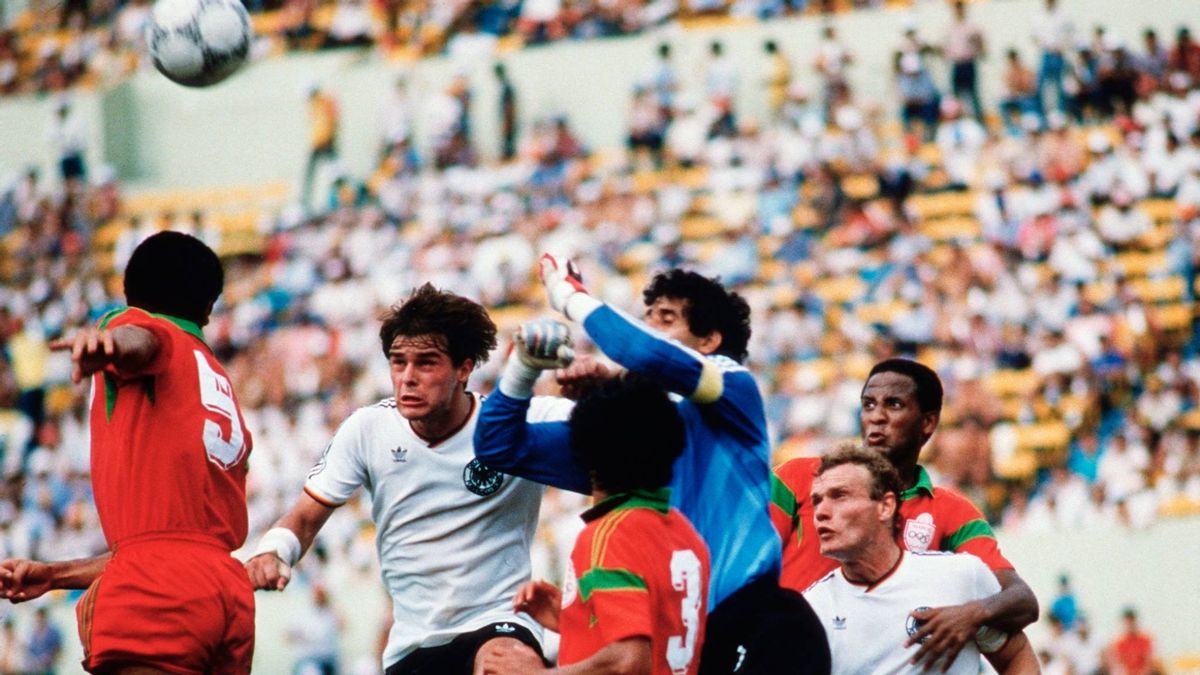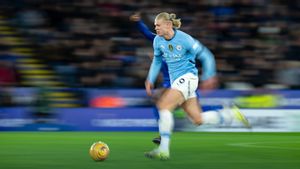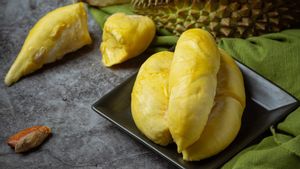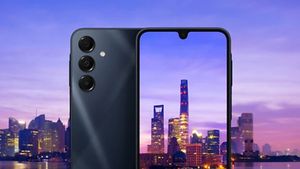JAKARTA - Morocco has often won the title of black horse at the World Cup. At the 1986 World Cup in Mexico, for example. The national team nicknamed the Atlas Lion looked surprising. The Brazilian coach's cold hand, Jose Foria, made Morocco able to repatriate Portugal.
This success made Morocco top the Group F standings. They were able to win over three European teams at once: Poland, England, and Portugal. Then, Moroccoised a new history as the first African team to pass the round of 16.
Morocco first appeared at a major world football event at Mexico's 1970 World Cup. At that time, Morocco was the only African representative at the 1970 World Cup in Mexico. The confidence of the players to the coaches was so high.
They are considered to be able to go further. However, the expectations and realities. Morocco's presence in Group D was only considered a sweetener. Morocco was then defeated by West Germany 1-2, beaten by Peru 0-3, and was only able to draw 1-1 when presented by Bulgaria. The result made Morocco have to settle for being at the bottom of the standings. That is, Morocco had to lift the suitcase early.
The 1970 Cup's nightmare of not wanting to be repeated by Morocco at the 1986 World Cup celebration at the same location, Mexico. The government of Morocco even intervened to help prepare his national team to compete in the 1986 World Cup.
They have even chosen a Brazilian coach, Jose Foria to lead Morocco. The choice was in fact successful. Morocco became a dark horse team in group F. Even though Morocco could only draw against Poland 0-0.bang again when they hosted England 0-0.
However, Morocco was able to excel over Portugal. The national team nicknamed the Navigator must recognize Morocco's 1-3 advantage. That result made Morocco surprisingly the top of Group F.
In the second match against Poland, Portugal lost only narrow, 0-1. With one win and one loss, it should not have closed their chances of winning a place in the next round. However, it turns out that the psychological damage to the Portuguese players is irreparable. Against Morocco, the group's weakest team, in the third match, Portugal no longer has the power.
They were scored with a landslide score of 1-3. Portugal set at the bottom of the standings and became the only team in the group not to step into the next round. Portugal's embarrassing failure at the 1986 World Cup Mexico is then popularly referred to in Portuguese terms as Casa Saltillo, or Arib Saltillo, "said Owen A. McBall in the book Football Villains (2010).
Morocco advanced as group F winners by challenging West Germany to rank second in Group E in the round of 16. This achievement made Morocco break two new records at once. First, Morocco became the first national team of the African continent to qualify for the 16th.
Second, Morocco became the first African national team to become group winners. An achievement that made the whole of Morocco proud. The record became the perfect fuel for facing his enemy West Germany in the round of 16.
Morocco's trust rose. They are scheduled to host West Germany at the Universitario Stadium, San Nicolas de los Garza, Le happened Baru, Mexico on June 18, 1986. However, the match did not go according to Morocco's wishes.
Germany managed to lead 1-0 because a free-kick goal from Lothar Matthmenchus lodged in the goal guarded by Badou Zaki in the 88th minute. Germany's victory forced Morocco to leave Mexico. However, all Moroccoians appreciated the move by the Atlas Lion for surviving so far in the 1986 World Cup.
In the last six World Cup appearances, there has always been an African team that qualified for the last 16. Morocco in 1986, Cameroon (quarter-finals) in 1990, Nigeria in 1998, Senegal (quarter-finals) in 2002, and Ghana in 2006. In 1990 Cameroon defeated defending Argentina. Likewise with Senegal who beat France, who at that time also had the status of defending champion, in 2002.
According to former Nigerian national team captain Sunday Oliseh, all of Africa is delighted if one of them achieves success. That's how Oliseh felt when he won gold at the 1996 Olympics. And this time, "If there was an African team that reached the semifinals on our land, I don't want to be in a team that had to fight them," Andy Marhaendra explained in the book From African Magic to Maradona Church (2010).
The English, Chinese, Japanese, Arabic, and French versions are automatically generated by the AI. So there may still be inaccuracies in translating, please always see Indonesian as our main language. (system supported by DigitalSiber.id)













